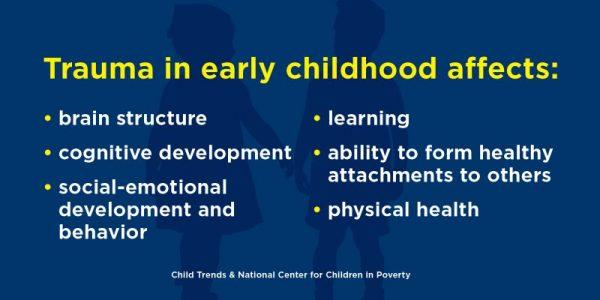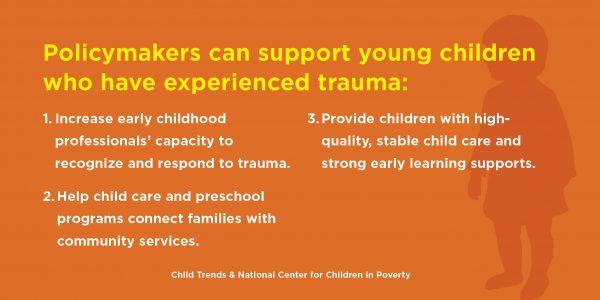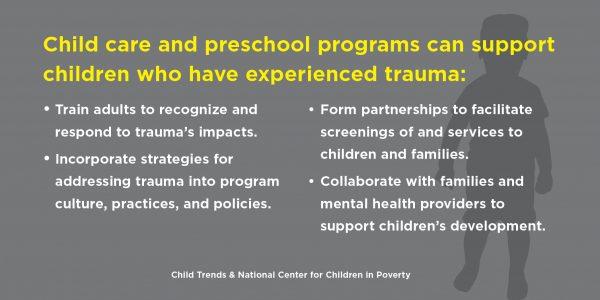Early care and education can help young children overcome trauma
In March, the Trauma-Informed Care for Children and Families Act of 2017 was introduced to the U.S. Senate and House of Representatives. The Act would create a federal interagency task force to support identification of and services for children who have experienced trauma.
Young children are at higher risk of being exposed to trauma, compared with older children. In early childhood, trauma can range from exposure to abuse, neglect, or domestic violence, to being separated from a parent or having a serious illness.
The rapid brain development during the first years of life makes children susceptible to the negative effects of trauma on cognitive and social-emotional development, learning, the ability to form healthy attachments to others, and physical health. It can undermine children’s ability to feel safe and secure. It can even manifest later in life, in behaviors that disrupt the ability to function well in school and work.

The proposed legislation contains supports for providing trauma-informed care in early care and education (ECE) settings (such as child care and preschool). Trauma-informed care requires all individuals who care for young children to be able to recognize and respond to the impact of traumatic stress in a coordinated way.
Given that every week nearly 11 million children under age 5 attend some form of ECE, these programs are useful venues for intervention. Yet few are equipped to meet the complex needs of children who have been exposed to trauma. The Act proposes addressing this in part by identifying best practices for providing trauma-informed care, and training child care administrators and providers in using them.
A new report by Child Trends and the National Center for Children in Poverty, Helping Young Children Who Have Experienced Trauma: Policies and Strategies for Early Care and Education, makes important recommendations. Recommendations for policymakers include:
- increasing early childhood professionals’ capacity to recognize and respond to trauma;
- expanding initiatives that help ECE programs connect families with community services; and
- providing children with access to high-quality, stable ECE and strong early learning supports.

Early childhood professionals can also help implement trauma-informed care. They can:
- train all adults to recognize and respond to the impact of trauma on young children;
- incorporate strategies for addressing trauma and its effects into organizational culture, practices, and policies;
- build partnerships that facilitate screening and services for children and their families; and
- promote collaborations among families, staff, and mental health professionals to support children’s development.

Trauma can take a long-lasting toll on children, their families, and the service systems with which they engage. If we improve ECE programs’ ability to respond to children’s trauma early on, we can mitigate its impact on millions.
We would like to thank the Alliance for Early Success and the Doris Duke Charitable Foundation for their support of this work.
© Copyright 2024 ChildTrendsPrivacy Statement
Newsletter SignupLinkedInThreadsYouTube